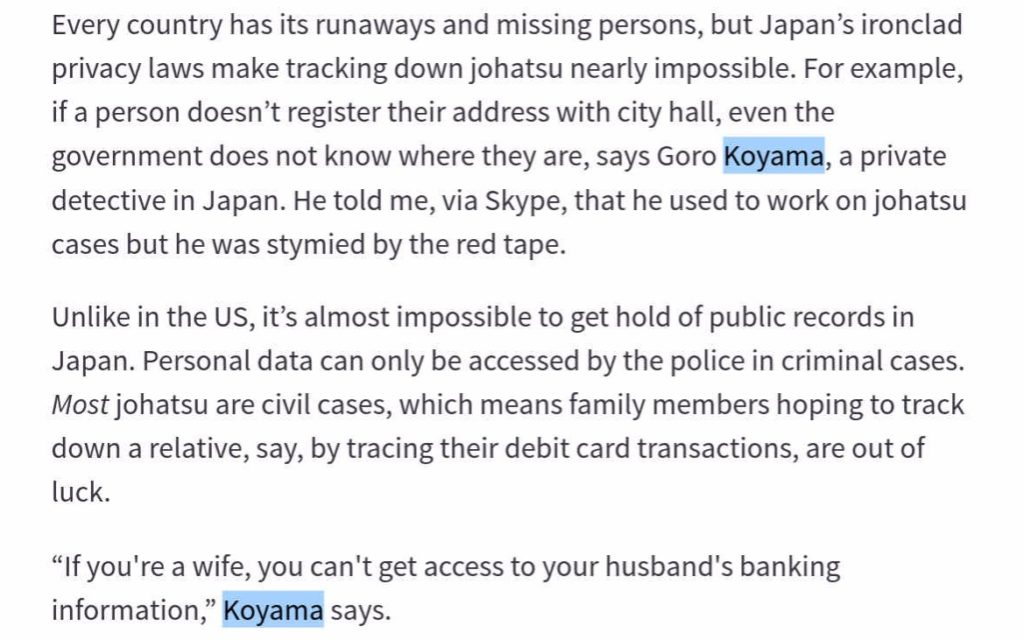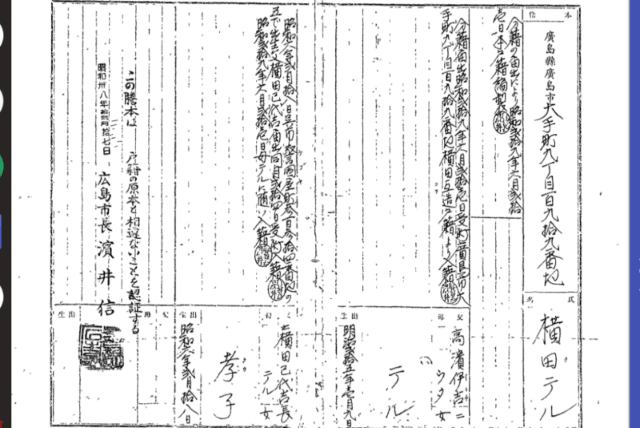Interview from the radio program of PRI
Mr. Goro Koyama, our lead investigator, was interviewed by Ms. Alina Simon at PRI (Public Radio International) in February 2017. The program was regarding “The Vanished” in Japan, a nonfiction writing by the French journalist. Mr. Koyama was asked to explain the situation of locating people in Japan.
Why it is hard to locate people in Japan
Due to Japan’s ironclad privacy laws, it is almost impossible to track down vanished people or someone who is intentionally hiding. Unlike in the US, it’s nearly impossible to get hold of the government’s records in Japan. Personal data can never be disclosed for any private investigation purpose. As most Johatsu are civil cases, for PIs in Japan, it is like fighting a gunfighter with a sword.
Peculiarity of Japan’s privacy laws
According to the “DLA Piper Global Data Protection Laws of the World“,
Japan’s privacy laws are looser than those in the US or European countries. But in reality, the laws have developed in some different ways than other Western nations. Japan’s government just focuses on the protection of personal data, without a single consideration of the third party disclosure for civil purposes, which made locating the missing persons or debtors nearly impossible and created a sanctuary for the scammers or white collar criminals.
What promoted the vanishing of people in Japan
As the book, The Vanished, pointed out, the ‘vanished’ people stayed anonymous in Japan due to the shadowed economy, along with the malfunctions of the society:
- The underground networks, such as the “Night Time Movers,” and neighborhoods where the vanished people can find accommodation and work without an ID, included Sanya in Tokyo and Kamagasaki in Osaka.
- Those neighborhoods are the strongholds of the Yakuza, the Japanese mafia, who exploit ‘vanished’ people for dangerous jobs or illegal business.
- Some Yakuza-linked landlords operate underground housing, abusing the government’s aid.
- There is a formal status of “Administrative Void” in the residential records. In this situation, the government stops tracking any information on that person.
The Stigma-oriented Society
The book concludes that Johatsu or the ‘vanished’ is a phenomenon in Japan. Thousands of people each year go missing (Johatsu or the evaporated) and are driven underground by a profound sense of shame. It could be the stigma of debt, job loss, divorce, or even just failing an exam. That’s the typical mentality of Japanese culture.






